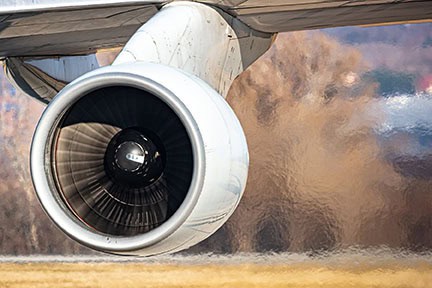High-performance aircrafts demand high-quality fuel—and delivering that fuel requires precision, safety, and efficiency. That’s where thermal process equipment comes in. From preheating and cooling to waste heat recovery, systems like shell and tube heat exchangers and economizers play a critical role in aviation fuel processing.
Let’s break down how this equipment helps refine aviation fuel—and why it matters for engineers and operators alike.
How Thermal Process Equipment Powers Aviation Fuel Processing
In aviation fuel refining—often part of larger distillation or hydroprocessing systems—precise heat control is everything. That’s where thermal process equipment comes in. These systems handle heating, cooling, and energy recovery at nearly every stage of the process, making them indispensable for efficiency, safety, and product quality.
Key Equipment and What It Does:
- Shell and Tube Heat Exchangers: Foundational to efficient heat management in fuel processing, these exchangers allow one fluid to flow through internal tubes while another circulates around them within the shell—facilitating reliable heat transfer. They’re used throughout the process for preheating fuel, condensing vapors, and cooling product before storage or blending.
- Preheaters: By warming up aviation fuel before it enters distillation towers or hydrotreaters, preheaters reduce viscosity, improve flow, and ease the load on primary heating systems.
- Condensers: Volatile hydrocarbons in fuel can vaporize during refining. Condensers convert these vapors back into liquid using coolants—capturing valuable components, enhancing safety, and avoiding environmental concerns from vapor discharge.
- Coolers: Once processing is complete, hot fluids need to be cooled to safe temperatures. Shell and tube exchangers function as coolers here, using chilled water or glycol to prep fuel for storage or downstream steps.
- Economizers: These units recover waste heat—often from flue gas or other hot process streams—and use it to preheat incoming fluids, saving energy and cutting fuel costs.
Supporting Sustainability with Aviation Biofuels
As aviation shifts toward more sustainable operations, bio-based fuels—such as Sustainable Aviation Fuel (SAF)—are becoming a critical part of the fuel mix. While these fuels can be processed in existing infrastructure, they come with different thermal and chemical characteristics.
Thermal process equipment design and selection play a key role in:
- Adapting to Feedstock Variability: Biofuels may be derived from biomass, animal fats, or even used cooking oil, all of which require fine-tuned temperature control during processing.
- Meeting Regulatory Targets: Shell and tube heat exchangers and economizers help reduce emissions and energy use—supporting compliance with carbon reduction goals from organizations like the International Civil Aviation Organization (ICAO) and the Federal Aviation Administration (FAA).
- Maximizing Yield and Quality: Proper heat management ensures that SAF meets strict performance standards for commercial aviation. Downtime is avoided through the design of equipment that is robust, easy to quickly maintain, and simple to monitor for performance.
Whether refining traditional jet fuel or advanced biofuels, the same principles apply: efficient heat transfer and energy recovery are essential for both economic and environmental performance.
Operational Best Practices for Thermal Equipment
When it comes to aviation fuel processing, small choices in equipment, maintenance, and monitoring can have a big impact on efficiency, safety, and reliability. Here’s how to stay ahead:
- Select the Right Equipment: Materials, flow rates, temperature range, and pressure ratings all matter. Stainless steel exchangers, for example, are a good fit for aviation fuel due to their corrosion resistance.
- Maintain It Regularly: Cleaning fouled tubes and inspecting for leaks or corrosion keeps heat exchangers running efficiently.
- Monitor the Process: Temperature and flow sensors can help detect issues early and allow for real-time adjustments.
- Train Your Team: Equipment is only as good as the people running it. Keep teams informed on best practices for performance and safety.
Fueling the Future of Aviation
Aviation fuel processing is high-stakes and high-precision—and the right thermal process equipment makes all the difference. Whether you’re engineering the system or purchasing components, shell and tube heat exchangers and economizers play vital roles in refining reliable, high-quality fuel.
And as the industry moves toward more sustainable aviation biofuels, thermal process equipment isn’t just helpful—it’s essential. It’s not just about heat—it’s about performance, reliability, and staying ahead of the curve in an industry that never stands still.
Have a project in the works? Let’s talk.
More from the Enerquip Blog
- Decoding the Delicate Balance of Sizing Shell and Tube Heat Exchangers
- Glycol Dehydration: Removing Water for Safer Natural Gas Transport
- Key Design Considerations for Harsh Marine Environments
- How Almost Any Industry Can Benefit from Waste Heat Recovery
- How Evaporation Equipment Powers Food, Pharma, Energy & More
- Vacuum Breakers 101: Small Device, Big Impact on Heat Exchangers

